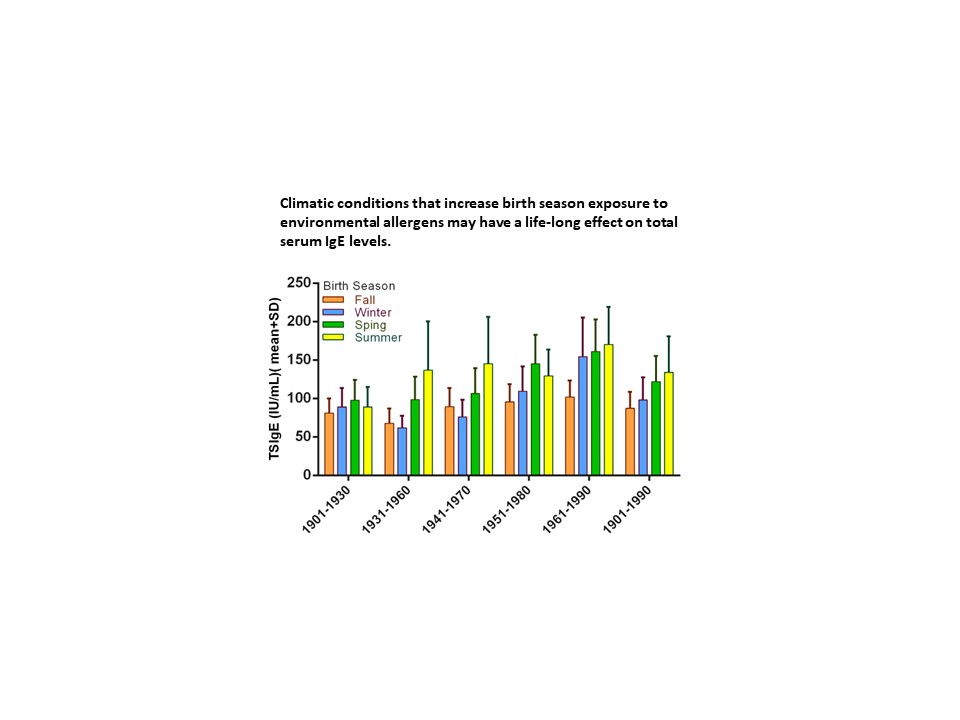Objective: To determine the effect of birth season climate on adult total serum IgE (TSIgE) levels. Study design: The study is a retrospective chart review with the following inclusion criteria: TSIgE measurement, age ≥16, and northeastern Tennessee birthplace. Main outcome measures include TSIgE levels, birth season climatic conditions, and regional pollen-producing plant and pollen counts. Results: The records of 1,274 women (mean age 40.8 ± 17.5, age range 16-96) and 762 men (mean age 38.1 ± 17, age range 16-82) seen in our Allergy Clinic were reviewed. Persons born in the spring and summer, the seasons with the highest pollen counts and the most favorable climatic conditions for plant growth, had nearly twice the odds of having TSIgE levels >1σ above the mean of the study group when compared to those born in the fall or winter (odds ratio (OR) 1.75, 95% confidence interval (CI) 0.96-3.17 and OR 1.93, 95% CI 1.04-3.57, respectively); odds were highest for those born in March (OR 2.55, 95% CI 1.37-4.74) and July (OR 2.38, 95% CI 1.25-4.51) and lowest for those born in November (OR 0.11, 95% CI 0.0068-1.79). When averaged over the 95-years of study and five 30-year climate cycles TSIgE levels increased linearly as the seasons progressed from fall to summer (r2= 0.9475, P=0.0266). Of the climatic factors, TSIgE levels correlated most strongly with levels of precipitation (r2= 0.9145, P=0.0437). Conclusion: Climatic conditions that increase birth season exposure to environmental allergens may have a life-long effect on TSIgE production.

